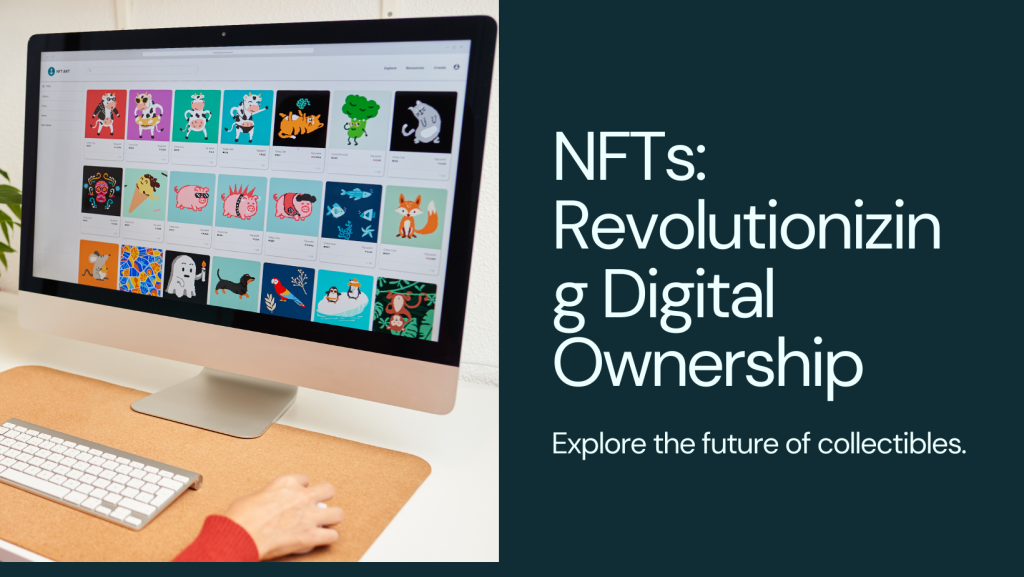Non-fungible tokens (NFTs) have taken the digital world by storm, revolutionizing the way we buy, sell, and trade digital assets and collectibles. Built on blockchain technology, NFTs represent unique digital assets that cannot be replicated or exchanged on a one-to-one basis like cryptocurrencies such as Bitcoin or Ethereum. As NFTs continue to gain popularity and mainstream adoption, they are reshaping the future of digital ownership and unlocking new opportunities for creators, collectors, and investors alike.
- Unique Digital Assets: NFTs enable the creation, ownership, and transfer of unique digital assets such as artwork, music, videos, virtual real estate, and collectibles on the blockchain. Each NFT is minted with a unique identifier that distinguishes it from other tokens, making it one-of-a-kind and irreplaceable. This uniqueness and scarcity give NFTs inherent value and appeal to collectors and enthusiasts seeking rare and exclusive digital content.
- Empowering Creators: NFTs empower creators to monetize their digital creations and retain ownership and control over their intellectual property. By tokenizing digital assets as NFTs, creators can sell limited edition or exclusive copies of their work directly to collectors, bypassing traditional intermediaries such as galleries, publishers, or record labels. This enables creators to capture a larger share of the value generated by their work and build direct relationships with their audience, fans, and supporters.
- Unlocking New Revenue Streams: NFTs are unlocking new revenue streams and business models for creators, artists, musicians, gamers, and content creators across a wide range of industries. From selling digital art and collectibles to monetizing virtual goods, experiences, and services, NFTs offer creators unprecedented opportunities to monetize their talents and creativity in the digital economy. Additionally, royalties and smart contracts embedded in NFTs enable creators to earn ongoing revenue from secondary sales and transactions, providing a source of passive income over time.
- Digital Collectibles and Ownership: NFTs are transforming the concept of ownership in the digital realm, enabling collectors to own and trade unique digital assets with provable scarcity and authenticity. From rare digital art pieces and virtual real estate to in-game items and digital memorabilia, NFTs allow collectors to build and showcase their digital collections in virtual and physical spaces. The ability to prove ownership, authenticity, and provenance of digital assets through blockchain technology enhances the value and desirability of NFTs as digital collectibles.
- Challenges and Considerations: Despite their potential benefits, NFTs also present challenges and considerations related to scalability, interoperability, sustainability, and regulatory compliance. As the NFT market continues to grow and evolve, addressing these challenges will be essential to ensuring the long-term viability and sustainability of the NFT ecosystem. Additionally, regulatory scrutiny and consumer protection concerns may impact the future trajectory of NFTs and influence how they are regulated and perceived by governments, policymakers, and the public.
In conclusion, non-fungible tokens (NFTs) represent the future of digital ownership, offering unique opportunities for creators, collectors, and investors to participate in the digital economy. By enabling the creation, ownership, and transfer of unique digital assets, NFTs are reshaping the way we buy, sell, and trade digital content and unlocking new possibilities for creativity, innovation, and value creation in the digital age. As NFTs continue to gain momentum and mainstream adoption, they are poised to transform the future of digital ownership and shape the way we interact with digital content and assets in the years to come.


